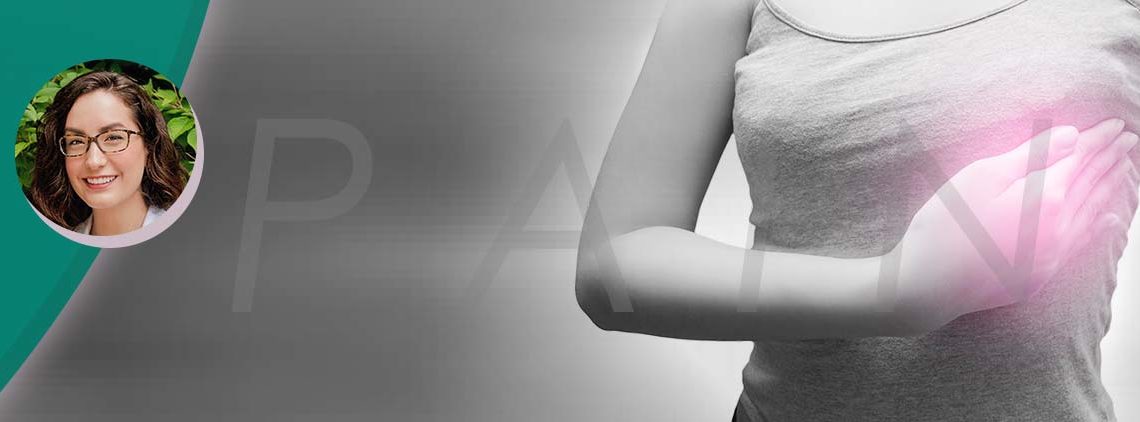Lindsay Drubel, PA-C, M.S.
Would you sometimes describe your breasts as aching, tender or experiencing the occasional sharp, shooting pain? If so, you are in good company. Studies have shown 70% of women have felt breast pain in their life and up to 69% even have regular breast discomfort. Why does this happen? When should you worry?
Breast pain can be separated into two different categories— cyclical breast pain and non-cyclical breast pain. Cyclical pain is typically hormonal in nature, worsening before the menstrual cycle and relieved after. Many women experience this pain and for most women it is just a mild discomfort, however; this pain can sometimes be severe and detrimental to quality of life. In these rare cases we encourage you to talk to a breast specialist about your pain.
Non-cyclical breast pain can have many causes: trauma from an accidental bump or bruise, muscular pain from your chest or shoulder muscles, or breast disease (an inflamed cyst or infection). In very rare cases, breast pain may correspond to a breast cancer.
Women who are evaluated by a breast specialist for noncyclical pain and have normal breast imaging should be reassured there is no sign of breast cancer.
CAN BREAST PAIN BE A GOOD THING?
Having tender breasts can make you pay attention to them! Women who have felt breast discomfort may do a self-breast exam or self-massage when ordinarily they would not. Having breast pain may bring you to a breast specialist where you can be reassured your pain is not related to breast cancer. During this conversation, you may learn about your personal lifetime risk of breast cancer, strategies to reduce your risk, breast disease and how your family history may impact a recommendation for Genetic Testing.
In some women, breast pain can push them to have their first mammogram. Average-risk women (with no family history of breast cancer) are recommended to have their first mammogram at age 40 and continue every year. In our practice, we recommend a baseline between age 35-40, especially in women with a family history of breast cancer. This is typically covered by your insurance.
Breast pain, while bothersome and sometimes frustrating, keeps you mindful of your breast health.





